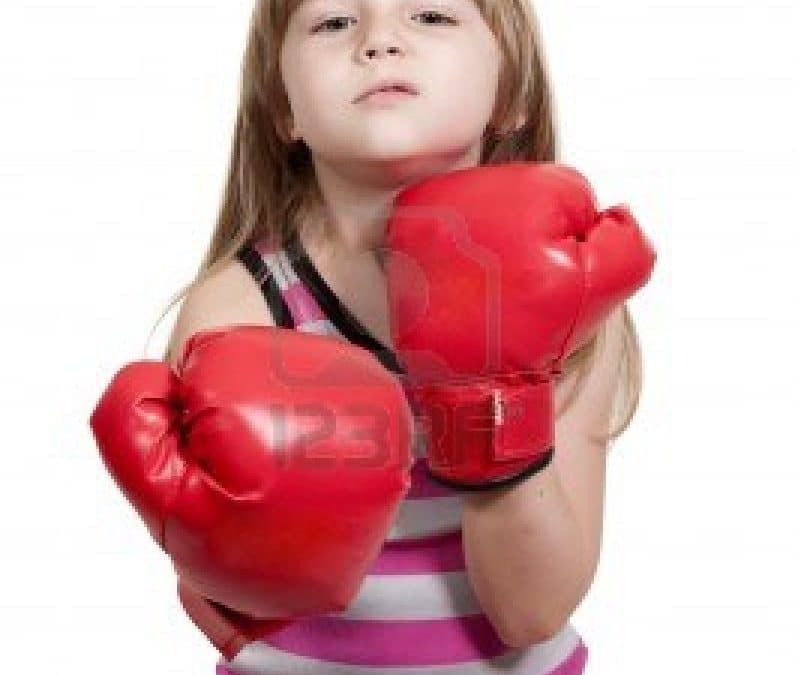
What to do if your child is hurting others?
I recently received the following e-mail from a reader and thought to post my reply here in case some of you are having similar problems:
Hi Anel – I need some advice. My daughter started Grade 000 and she is loving it (and has always loved playschool), BUT she is the only child hurting the other children (most of whom are smaller/shorter than her). The teacher has told me not to worry, but I do. The teacher says it pretty much comes down to that when she gets overwhelmed and we have seen it as well, when there is too much attention or she gets shy, she gets ugly and pushes, or scratches, or hurts someone. Any suggestions or direction would be hugely appreciated. PS: She is an only child.
There might be a few possible reasons for her behaviour (and perhaps even a combination of them all):
* If she seems to have a low threshold for processing sensory information and easily gets overwhelmed when there is just too much going on you might want to have her see a Sensory Integration Occupational Therapist. It’s possible that she might have a sensory integration disorder (don’t panic – sounds much worse than it is) and a few sessions of OT with some tips on things you and the teacher can do to help her should make a big difference.
* The second scenario, which we often see with single children might simply be that she doesn’t have the added benefit of learning social coping strategies from an older sibling. Thus, when she’s in a social situation with the adults around her and she becomes shy adults know how to act around her so they don’t make it feel like a big deal. But kiddies might keep pestering her and she wont have the social cues to know what to do. You can help by giving her some guidance and asking the teacher to keep an eye out for when she’s getting frustrated or overwhelmed. Teach her to say :”I don’t want to talk about that right now. Lets go play a game” or “I’d like to play by myself for a little bit, I’ll come find you when I want to play” or even to just to go to her teacher and explain that she needs some “quiet time”. Also try to teach her to find a quiet corner somewhere when she’s feeling “angry” or “shy”.
* She might also be confused by the different boundaries at home and school. Because she’s an only child the boundaries at home are probably a little more relaxed than at school where the teacher has to try and control 20+ children. She doesn’t necessarily have to share at home and doesn’t have to compete with others for attention, whereas in class it’s a whole different ball game. You can help her by trying to align the rules of home and school as closely as possible. Chat to the teacher about the different rules at school and try to include as many of these at home (without completely disrupting your flow). Also try to use the same discipline measures as the teacher so that she understands what is expected of her and also what to expect when she oversteps the boundary.
Try the following:
* Remember to make it very clear that you dislike her behaviour and not her as a person.
* Chat to her every morning in the car on the way to school and explain to her what you expect of her. Also be quite specific, so instead of saying: “No hurting other children” say “I don’t want you to pinch, hit, kick, shove …”. You might want to even add a positive such as: “The (your child’s name) I know is a very sweet, kind little girl and I certainly don’t want her doing ugly things like that”.
* Try to catch her being good. Ask the teacher to let you know when she’s had a good day and make a big deal out of it. Give her lots of praise and perhaps even a token such as a sticker, etc (try not to bribe. The ol’ “If you don’t hurt someone today I’ll buy you an ice-cream” trick usually only works in the short term).
*
Start a star chart – so every day she’s good she gets a sticker and at the end of the week if she has 5 stickers you guys get to do something fun together. Never take stickers away for bad behaviour. Another version of this visual reward system that I like better than the sticker chart is a
“self-esteem wall”. You cut out pieces of brown paper the size of bricks and every time you catch her doing something good both at home and at school (being nice, sharing, picking up her toys,etc) you write that on the brick – you can even add a gold star – and stick it on the wall. Start from the bottom of the wall (around a door frame works very well) and see how high you can build her wall up. Other ideas on how to
boost your child’s self-esteem can be found here.
* I have written a
children’s story book called
Crano the Volcano and have published it on this website. The books aims to explain to children that if you “keep your anger inside you’ll eventually explode”. She might not indicate that she understand straight away but I’m surprised at how easily little ones usually get the lesson. Also explain that it’s
okay to get angry / upset but that it’s
NOT okay to hurt ourselves or others or break things when we’re upset. I usually explain that yucky feelings like anger / sadness is like food left at the back of the fridge if we don’t take it out it’ll eventually rot and make us feel sick. So I then chat to them about some ways to “get their anger out” (be it exercise, hitting a punching bag, talking to someone about it) – encourage her to do some of these positive things when she’s feeling upset. Here is a link to a previous article with some
anger management strategies for kids.Good luck – and please let me know how it goes!


